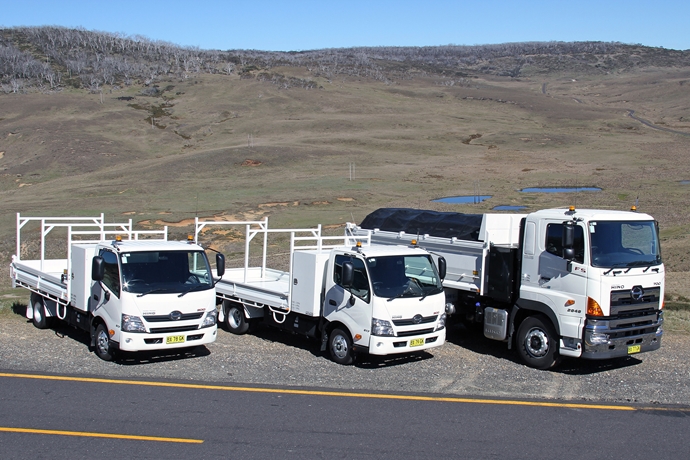
Fleets can be expensive assets to operate, but when utilised and maintained correctly they are a crucial and effective tool for businesses.
Hino Australia’s Corporate Business Manager, Government, Tom Ayrton helps manage fleets to assemble and maintain successful operations with problem solving and experienced advice. Tom has five tips from his experience for fleet owners to gain the best return on investment.
- Employ drivers with the right attitude and aptitude. Drivers are the face of your business and their behaviour both on and off the road reflects your name and reputation. Presentable, personable drivers can boost your image with customers, build rapport and result in a stronger professional relationship at the front line.
- Service your vehicles according to OEM specification. The added benefits and value you get from using genuine parts ensures your fleet stays on the road for longer generating greater profitability. Genuine lubricants are highly recommended as viscosity and detergent variants between different brands of oil may affect your vehicle’s performance and life span.
- Manage controllable costs. Running costs, especially fuel can very quickly get out of hand if not controlled. Efficiencies can usually be found in teaching good driving behaviour and reinforcing fuel efficient driving habits such as shifting to a higher gear earlier, turning off the engine when loading or unloading and driving smoothly.
- If it’s seen, keep it clean! Trucks are mobile billboards for your business, your brand and your clients. A dirty and poorly maintained vehicle looks unprofessional at best. Invest in keeping trucks clean and have any damage repaired. The condition of your trucks says more about your business than most people realise.
-
Walk the talk! Good fleet managers get out and about and regularly engage one-on-one with their drivers. Find the time to have ‘tool box’ chats with drivers to discuss expectations of on-road behaviour, safety, vehicle condition and fuel usage. Personally delivering the expectation will carry far more weight than any amount of emails, bulletins or procedures manuals. That way you ensure there is no ‘us’ and ‘them’ mentality in your company and that fleet management is ‘our’ shared responsibility.